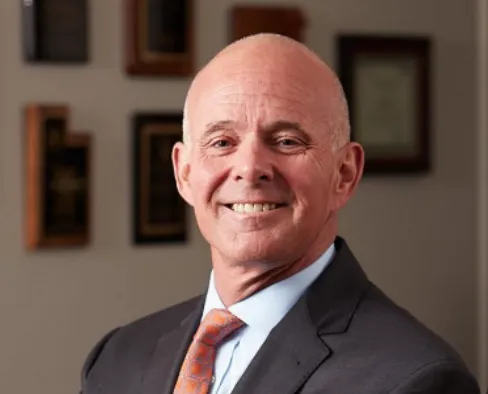Mark DeVries has been out in the cold for much of his working life. Not in the sense of being shunned – it’s just that he’s an expert on snow and ice removal so has spent more time than most in freezing temperatures, trying to find the best ways of keeping roads open and traffic moving.
When cold weather comes, local authorities tend to reach for the salt. But salt corrosion is a problem for highways and bridges as well as vehicles – and there are suggestions that it is affecting the state of freshwater ecosystems too - so using less of it makes sense. DeVries is a veteran of the industry, spending 30 years with McHenry County Division of Transportation. His other roles include chairman of the National APWA (American Public Works Association) winter maintenance sub-committee, and membership of both the Winter Maintenance Technical Service Program and the
DeVries is now lead consultant and winter maintenance expert for real-time weather data provider
Hitting headlines
It will not have escaped your attention, but there have been some fairly major weather events – including hurricanes and floods – hitting cities (and the headlines) in recent years. “We’ve seen more extreme events in the southern parts of the US,” DeVries muses. “We’ve had storms that have shut Atlanta down.”
For authorities tasked with keeping urban traffic moving, this presents a conundrum: finance is finite and equipment needs to earn its keep. “You have to gear yourself for what you consider ‘normal’,” DeVries says. Given that blizzards are so rare in the normally-temperate south of England, for example, it is a hard sell to secure much investment there in snow ploughs - but there was widespread disruption earlier this year in the UK as an unusually bitter cold front snarled up the transport system for significant periods. “When you have these situations, the time to talk about it is then,” he continues. “You can buy a fire truck and hope you never use it. Why don’t we think the same way about snow removal equipment? Because one week it’s bad and the next it’s warmer: people have short memories.”
Raised expectations
A variety of innovations are available to help - from sensors on snow ploughs which measure road conditions and report back, to weather stations installed along roadways providing real-time information to maintenance managers.
Road managers can also remotely apply chemicals using pre-installed systems to areas that are known to become dangerous. “We’ve got to be versatile as well,” says DeVries. Better data helps to drive better decisions and quicker responses, while better forecasting means preparedness is amplified.
“What’s really changed – and this is my own personal opinion – is that weather is in front of everyone, every day,” says DeVries. “Our dilemma is that once you’ve raised expectations, it’s hard to bring them back down – and it’s difficult sometimes to meet them. Cities are getting bigger, Chicago has expanded, we’re paving more, there are more cars, more people.”
People want to be able to move about, whatever the elements throw at them. “But should the main highway, the interstate, be in the same condition as the road you live on? Is that really achievable? Should it be?”
And for all the talk of cost/benefit, man does not control the environment. “There are going to be storms where Mother Nature wins,” DeVries concludes. Truly, that is the voice of experience.










